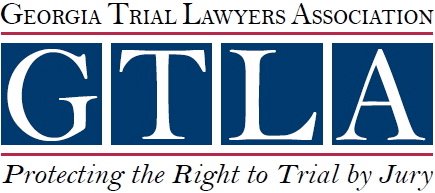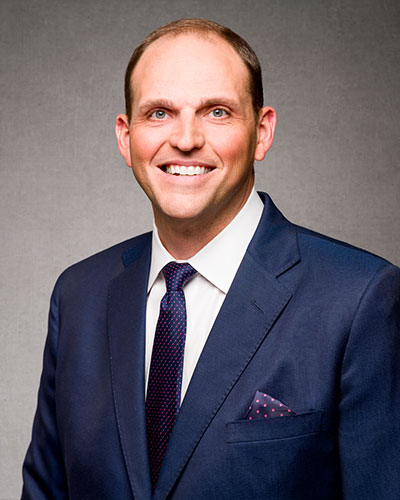Riding a bike can be a great way to enjoy the outdoors, stay active, and even commute in Georgia. But just like with cars and other vehicles, bike accidents happen, and when they do, they can be very serious. If you are involved in a bike accident, knowing what to do right after it happens can make a big difference. One of the most important steps is to record evidence at the scene. This evidence can help prove what happened and who was at fault. If you ever need to take legal action, having this evidence can be the key to winning your case.




Accidents can be confusing and scary, and it’s easy to forget things in the moment. But taking the time to gather the right information at the scene can make sure that your rights are protected. In this guide, we will talk about why recording evidence is important and how it can help your case if you are ever involved in a bike accident in Georgia. Princenthal, May & Wilson, LLC provides dedicated legal representation to help bike accident victims seek the compensation they deserve for their injuries and damages.
Why Recording Evidence Matters After a Bike Accident
When an accident happens, it’s not always clear who is responsible. Sometimes, the drivers involved may try to blame the cyclist. Without evidence, it can be hard to prove your side of the story. The information gathered at the scene of the accident can help show who was at fault. This evidence can include photos, witness statements, and even your own notes about what happened. If you ever need to file an insurance claim or take your case to court, this information will help you back up your claims and make sure that you are treated fairly.
Accidents often come down to one person’s word against another’s, especially if there are no other witnesses around. When you have clear, solid evidence from the accident scene, you can show what really happened. This is important because insurance companies and courts rely on evidence to make decisions about who was at fault and who should pay for damages. If the evidence is in your favor, it can help you get the compensation you need to cover medical bills, bike repairs, and other costs related to the accident.
Taking Photos of the Accident Scene
One of the best ways to record evidence after a bike accident is by taking pictures. Photos can capture important details that you might not remember later. When taking photos, be sure to capture the entire scene of the accident. This includes the road, any nearby signs, and any vehicles involved. Make sure to also take pictures of your bike and any damage to it. If your body was injured, take pictures of those injuries too. These photos can show exactly what happened and can be used as evidence if needed.
Make sure to get different angles of the accident scene. This will help show what the road conditions were like, where the vehicles were, and any other factors that could have contributed to the accident. If there are skid marks, broken glass, or other signs of the accident, make sure to take pictures of those as well. Even small details can be important later when building your case.
Speaking to Witnesses at the Scene
If anyone saw the accident, their account of what happened can be very valuable. Witnesses can help confirm what happened and who was at fault. If there are people around who saw the accident, ask them to stay until the police arrive so they can give a statement. If they need to leave, make sure to get their contact information so you can reach them later. Witnesses can help strengthen your case, especially if the other driver tries to claim that they were not at fault.
When you speak to witnesses, try to get their version of the events as soon as possible. Over time, people’s memories fade, and they may forget important details. If you can get their statement right away, you will have a clearer picture of what happened. Make sure to write down what they say and ask for their contact information in case you need to reach them later.
Writing Down Your Own Account of the Accident
While it’s important to gather evidence from other sources, your own account of the accident is just as important. After the accident, take some time to write down what happened while the events are still fresh in your mind. Try to include as many details as possible, such as the time of day, weather conditions, and the actions of the other driver. These details might seem small at the time, but they could be important later when figuring out who was at fault.
If there are any specific things that stand out to you, such as the other driver speeding or running a red light, make sure to include those details in your notes. Having your own clear version of the events can help you stay consistent when talking to the police, insurance companies, or lawyers. It also helps prevent you from forgetting important details as time passes.
Reporting the Accident to the Police
Even if the accident seems minor, it’s always a good idea to report it to the police. The police will create an official report that can be used as evidence later. When the police arrive, give them your account of the accident and make sure to mention any important details, such as whether the other driver was speeding or distracted. The police report will include this information, and it can help your case if the other driver was at fault.
If the police create a report, make sure to get a copy of it for your own records. This report will include important information, such as the names of the people involved, witness statements, and the officer’s observations. Having this report can help back up your version of events if there is any disagreement about what happened.
Hiring a Personal Injury Attorney How Long Will a Personal Injury Case Take?Related Videos
Understanding the Role of Medical Evidence
If you were injured in the accident, it’s important to seek medical attention right away, even if the injuries seem minor at first. Some injuries, such as concussions or internal injuries, might not show symptoms right away but can become serious later. When you visit a doctor, they will create medical records that show the extent of your injuries. These medical records can be important evidence in your case, as they show how the accident impacted your health.
Make sure to keep track of all medical visits and treatments you receive as a result of the accident. This includes doctor visits, physical therapy, and any medications you are prescribed. These records will help show how serious your injuries were and can be used to request compensation for medical bills and pain and suffering.
Why Legal Help is Important After a Bike Accident
While gathering evidence at the scene of a bike accident is important, it can still be difficult to navigate the legal process on your own. Insurance companies often try to settle cases for less than they are worth, and it can be hard to know how much compensation you are entitled to. This is where having legal help comes in. An experienced lawyer can help you understand your rights and make sure that you get the compensation you deserve.
A lawyer can also help you gather additional evidence, such as traffic camera footage or accident reconstruction reports, to strengthen your case. They can deal with insurance companies on your behalf and negotiate a fair settlement. If your case goes to court, a lawyer will represent you and fight for your rights.
Representative Cases
Recording evidence at the scene of a bike accident in Georgia is one of the most important steps you can take to protect your rights and ensure a fair outcome. By taking photos, speaking to witnesses, and keeping detailed records of the accident, you can build a strong case to prove what happened and who was at fault. But even with all this evidence, navigating the legal process can still be challenging. That’s why having the right legal representation can make all the difference.
If you or a loved one has been involved in a bike accident and need legal guidance, Princenthal, May & Wilson, LLC is here to help. Our experienced team understands the complexities of bike accident cases and will work to get you the compensation you deserve. Contact us today to discuss your case and take the first step toward protecting your rights.





